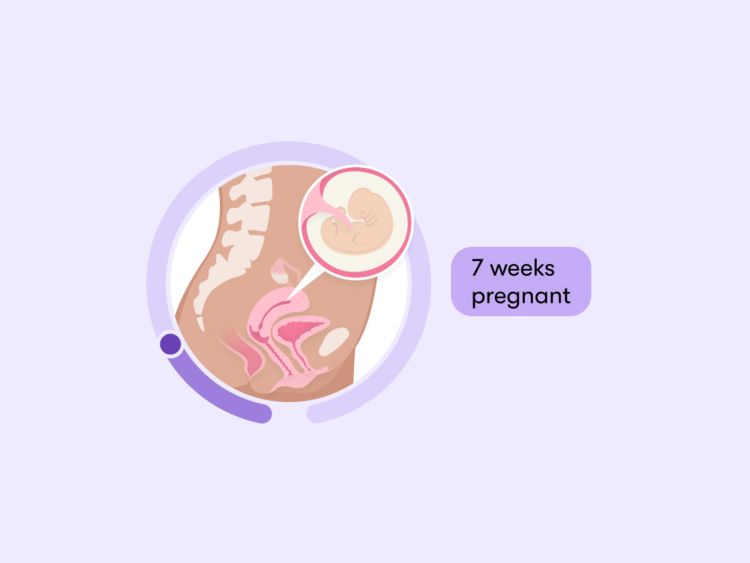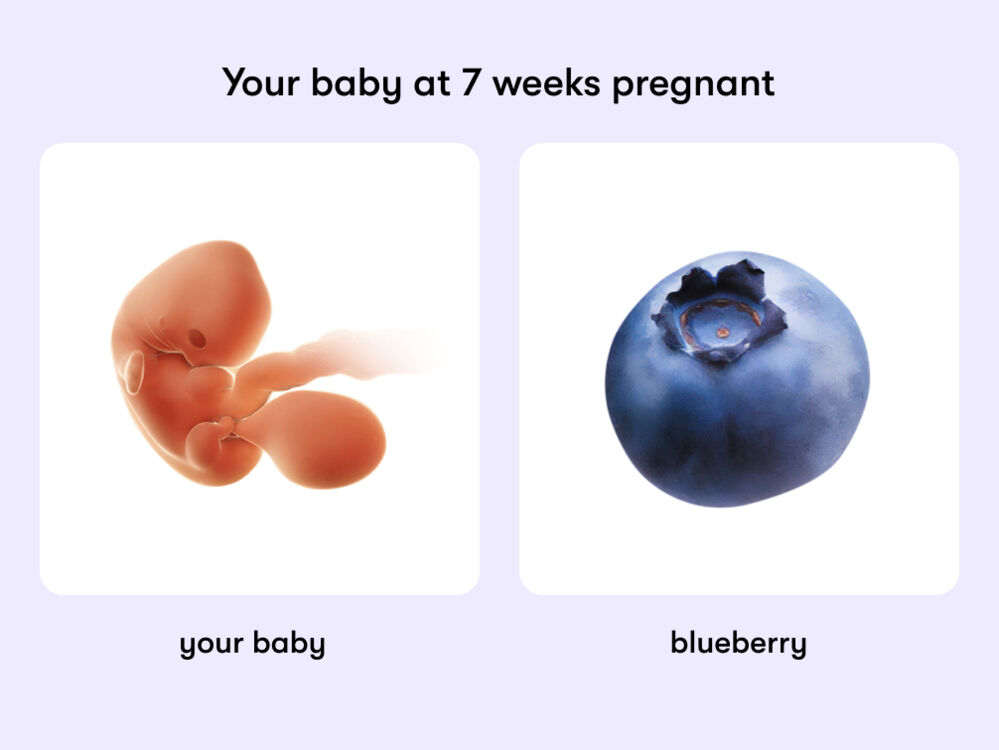At 7 weeks pregnant, you’re well into your first trimester. At this point, you might be contending with early pregnancy symptoms such as nausea and tiredness and the different lifestyle changes recommended by your doctor.
You may also be wondering when to tell friends, family, and colleagues about your pregnancy. The short answer? There’s no right or wrong time — it’s just when you feel ready. Some people wait for their first ultrasound scan (which generally happens close to 12 weeks pregnant), while others let close friends and family know as soon as they test positive. You do what’s right for you.
You might have questions about what’s going on with your body and your baby at 7 weeks pregnant, and you’re certainly not alone. It’s natural to wonder whether your symptoms are normal. You might also be wondering what some of the signs of a healthy pregnancy are. So, to get the lowdown on what’s happening when you’re 7 weeks pregnant, a Flo expert outlines everything you need to know.
Your baby at 7 weeks pregnant
Developing limbs
At 7 weeks pregnant, your baby is growing at a rapid rate. In fact, the brain grows at around 250,000 nerve cells per minute throughout pregnancy. Your baby will then be born with more than 100 billion neurons. Pretty amazing, right? And it isn’t just their brain that’s undergoing constant change — their limbs are also starting to form.
The small buds which started to grow out of their body at around 6 weeks of pregnancy will continue to develop, forming cartilage that will become the bones for their arms and legs. The end of each bud will then flatten out (this can look like small paddles that will eventually become their hands and feet).
Forming inner ears
As your baby’s major limbs continue to grow, their finer, more delicate features will also continue to form. As their eyes and mouth continue to develop, the beginnings of your baby’s inner ears will also form around 7 weeks pregnant. While your baby doesn’t have ears as we know them around this time, the foundation of their hearing system is growing.
How big is a baby at 7 weeks?
Length (crown to rump): 9.5 mm or 0.37 in.
Weight: Too small to calculate accurately
Size: Equivalent to a blueberry
All measurements are approximate and vary within the normal range.



